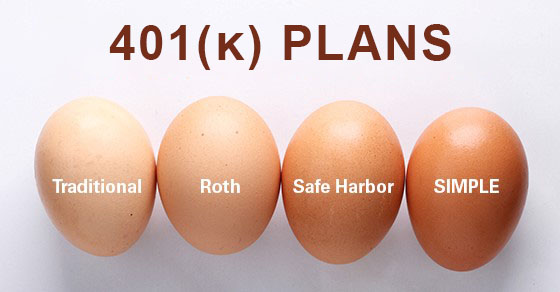By and large, today’s employees expect employers to offer a tax-advantaged retirement plan. A 401(k) is an obvious choice to consider, but you may not be aware that there are a variety of types to choose from:
Traditional
Employees contribute on a pretax basis, with the employer matching all or a percentage of their contributions if it so chooses. Traditional 401(k)s are subject to rigorous testing requirements to ensure the plan is offered equitably to all employees and does not favor highly compensated employees (HCEs).
In 2018, employees can defer a total amount of $18,500 through salary reductions. Those age 50 or older by year end can defer an additional $6,000.
Roth
Employees contribute after-tax dollars but take tax-free withdrawals (subject to certain limitations). Other rules apply, including that employer contributions can go into only traditional 401(k) accounts, not Roth 401(k)s. Usually a Roth 401(k) is offered as an option to employees in addition to a traditional 401(k), not instead of the traditional plan.
The Roth 401(k) contribution limits are the same as those for traditional 401(k)s. But this applies on a combined basis for total contributions to both types of plans.
Safe harbor
For businesses that may encounter difficulties meeting 401(k) testing requirements, this could be a solution. Employers must make certain contributions, which must vest immediately. But owners and HCEs can maximize contributions without worrying about part of their contributions being returned to them because rank-and-file employees have not been contributing enough.
To qualify for the safe harbor election, the employer needs to either contribute 3% of compensation for all eligible employees, even those who don’t make their own contributions, or match 100% of employee deferrals up to the first 3% of compensation and 50% of deferrals up to the next 2% of compensation. The contribution limits for these plans are the same as those for traditional 401(k)s.
Savings Incentive Match Plan for Employees (SIMPLE)
If your business has 100 or fewer employees, consider one of these. As with a Safe Harbor 401(k), the employer must make certain, immediately vested contributions, and there is no rigorous testing.
This has been but a brief look at these types of 401(k)s. Contact your financial adviser for more information on each, as well as guidance on finding the right one for your business.

